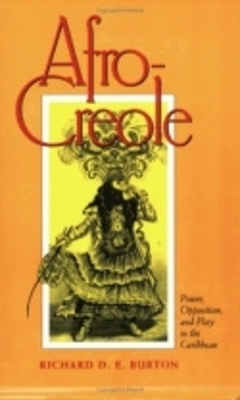This wide-ranging book explores the origins, development, and character of Afro-Caribbean cultures from the slave period to the present day. Richard D. E. Burton focuses on ways in which African traditions—including those in religion, music, food, dress, and family structure—were transformed by interaction with European and indigenous forces to create the particular cultures of Jamaica, Trinidad, and Haiti. He demonstrates how the resulting Afro-Creole cultures have both challenged and reinforced the social, political, and economic status quo in these countries.
Jamaican slaves opposed slavery in many ways and one of the most important, Burton suggests, was the development of Afro-Christianity. He pays particular attention to the African-derived Christmas celebration of Jonkonnu as an expression of opposition and then documents religion in the post-slavery period, with an emphasis on Rastafarianism in Jamaica and Vodou in Haiti. The element of play has always figured importantly in Afro-Caribbean life. Burton examines the evolution of carnival and calypso in Trinidad and describes the significance of cricket in defining Caribbean national identity.
Based on ten years of research, Afro-Creole draws on historical, anthropological, sociological, and literary sources. Burton characterizes the emergence of Caribbean identity with three different national flavors and demonstrates how culture both reflects and impacts people's changing sense of their own political power.
- ISBN10 0801483255
- ISBN13 9780801483257
- Publish Date 5 June 1997
- Publish Status Active
- Publish Country US
- Imprint Cornell University Press
- Format Paperback (US Trade)
- Pages 320
- Language English
